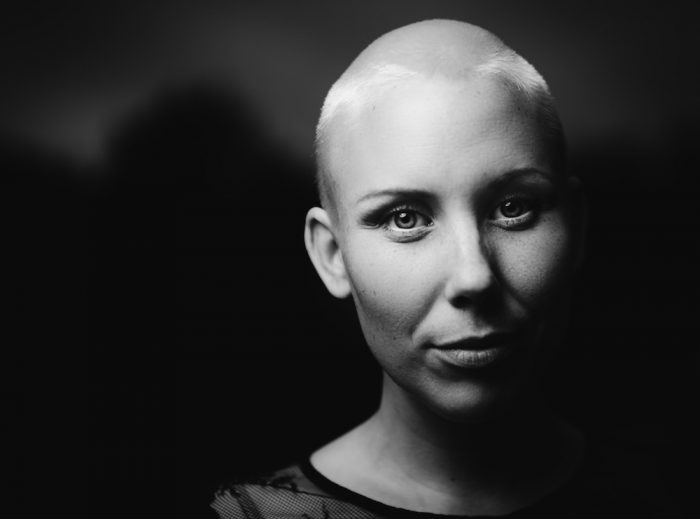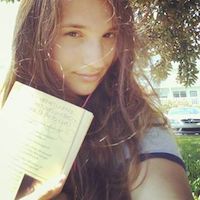I’m a Hodgkin’s lymphoma survivor, and this past weekend I went to a conference about cancer.
I was excited to learn more about integrative approaches to cancer, since I am becoming a yoga therapist in December.
I had some food, exchanged some stories, meditated, took notes. I was feeling positive overall about my experience.
Well, until sh*t hit the fan.
At lunchtime, we were told we would be placed in groups during a discussion about stem cell transplant. I was one of the first to step into the conference room with my food, and I stop dead in my tracks, with my mouth at a very odd angle of bewilderment and shock.
On each table was a sign in big, bold letters—I was supposed to sit at a table based on which cancer I had survived!
It was a big conference room, so I swerved left, balancing my food in between chairs—on my way to reach my cancer. I accidentally ended up in the leukemia section. Next, I tried going to the right—no luck there. Hello, non-Hodgkin’s table! Nice to see you, but still not my cancer. Finally, I spotted my place: a completely empty table, right smack in front of the speaker’s podium.
I felt so bothered and upset by this process that I suspected there should be trauma counselors on the sidelines to guide you from the door. Nope—they were too busy giving out free shirts in the lobby.
As the other tables filled up, I saw that the age difference was obvious. Once again, I was feeling something very familiar to me, but I couldn’t quite put my finger on it. I had flashbacks of being the only young adult getting chemotherapy in a children’s hospital.
At least it gave me the benefits of blowing bubbles during chemo and getting princess band-aids after my blood work.
Next, a flashback to the radiation center, where the 50-something wife of a man with brain cancer has tears in her eyes; “But you’re so young!”
Not only did I not fit in with my peers anymore, I did not fit in with cancer.
Eventually, two other people sat at my table. To fill the awkward silence of the elephant in the room, we asked how long we had each been in remission. I have been for nine years, and the other survivors for a year or less.
The first thing one of the guests at the table commented was, “Well, we got the curable cancer,” (About 80 percent of people diagnosed with Hodgkin’s lymphoma will survive for at least five years and are considered cured after this point. The doctors refer to it as the “easy” or “curable” cancer because of this).
First issue I have with this: having a cancer labeled as “curable” diminishes the whole awful, traumatizing experience for us. Did I not have to wonder what was wrong with me for months because I had a bump and felt bone-tired? Did I not have chemotherapy and radiation just like anyone else? Did this diagnosis not traumatize me, my family, and my friends?
I won’t lie; of course we want to hear that something we have is curable. But why do we have to label it as such? As if we did not get it as hard as someone else. I even had people in my life at the time question if I had “real” cancer.
The second issue I have is when people say “congratulations.”
I want to be congratulated on graduation, getting married, or something equally happy and exciting. Getting to the other side of cancer is not a congratulatory event. Congrats—we did not die!
What people must understand is that we did not choose this. We did not get cancer because it was our fault, and we did not heal from it for any reason other than that we agreed to show up for treatments.
I challenge those with cancer, those who have survived, and anyone in between to start a terminology movement. Let’s find new words:
>> Please, take “congratulations” out of the conversation.
>> Do not label a cancer as easy.
>> Do not find fault in my behavior for my diagnosis.
>> Do celebrate who I am and what I want to be, no matter what stage in my diagnosis I am at.
How about, instead, we say, “Welcome to the next step in your journey. May you find joy on the other side.”
Sure, it was nice to sit among such badass women at that table. But we do not bond over the name of our cancer. We bond because we are all so much more than that.
I am a writer. I am a daughter. I am a dancer. I am a healer. I am so much more than my experience of cancer or a label on a piece of paper.
And I sure as hell am not cancer.












Read 0 comments and reply